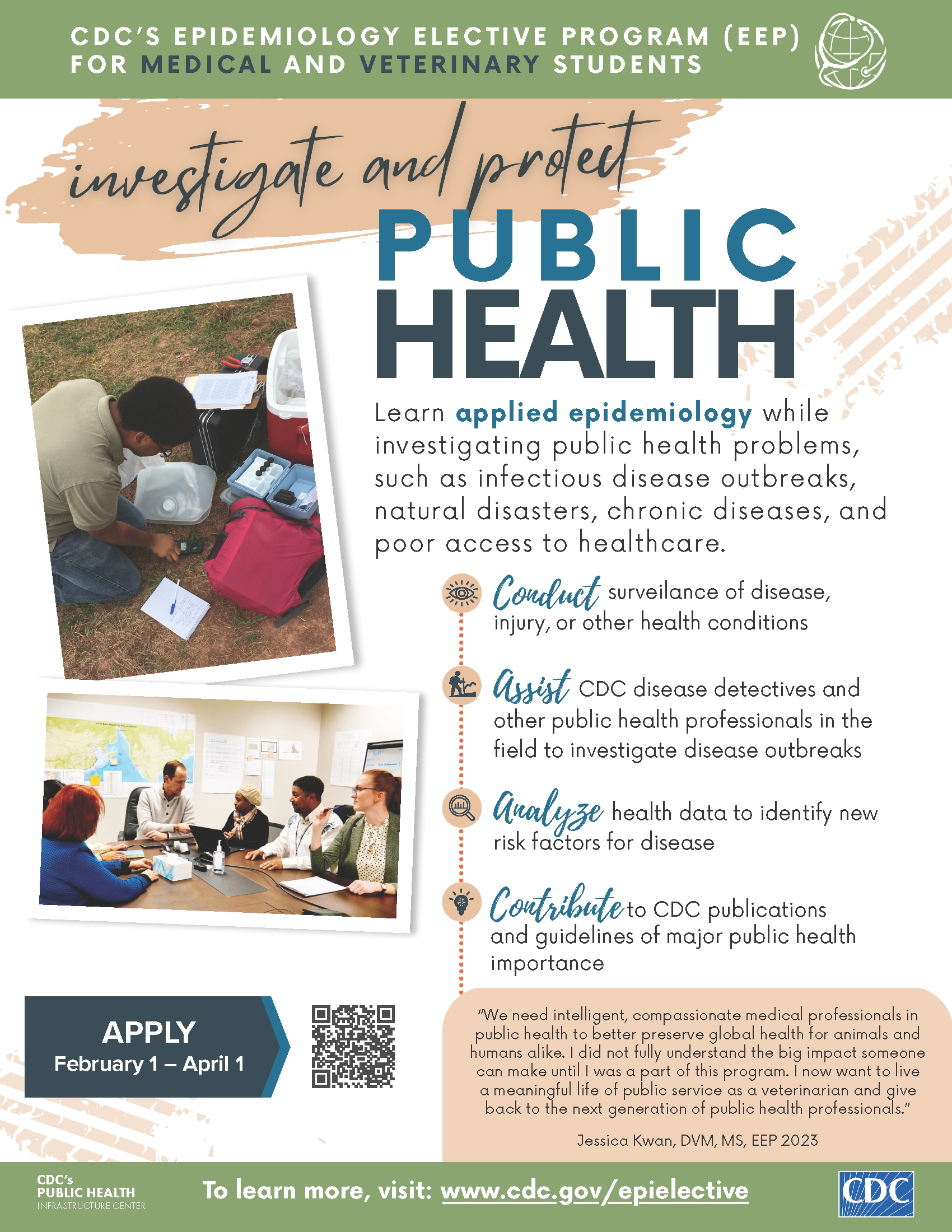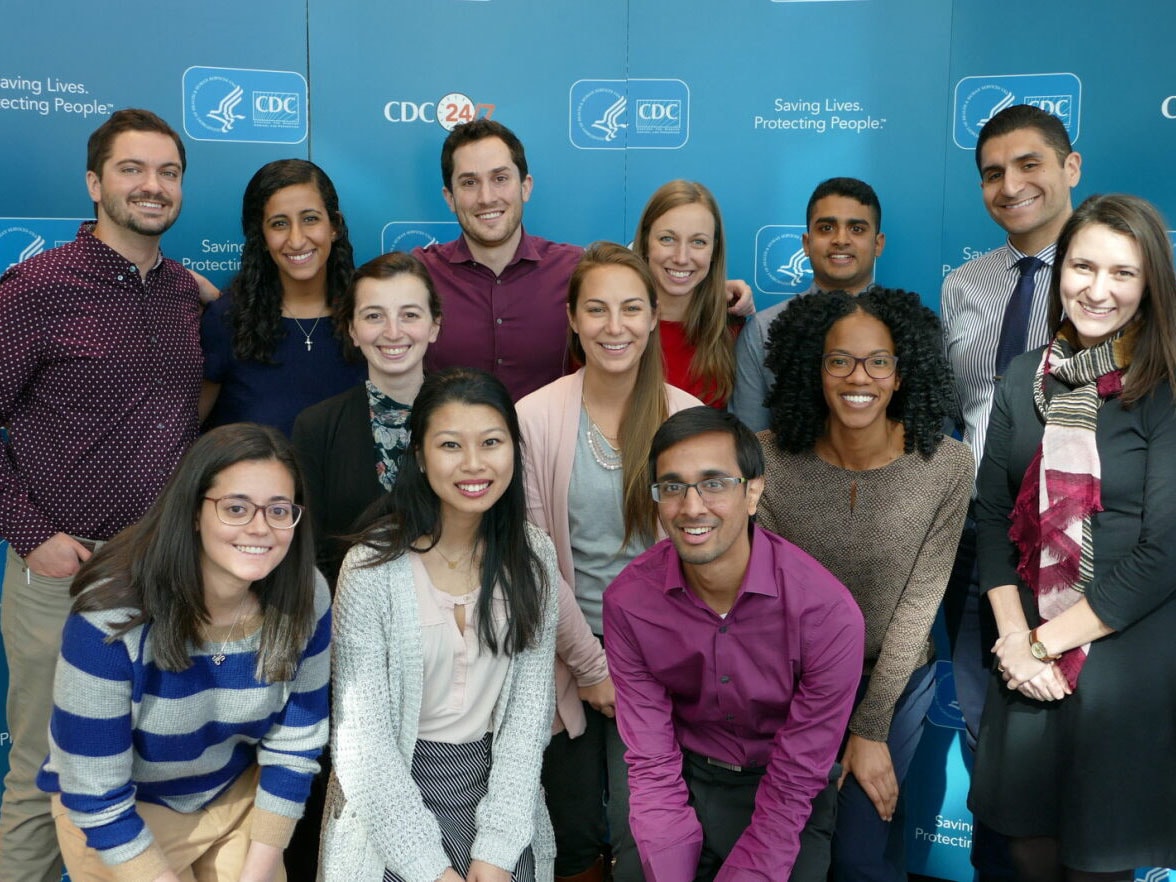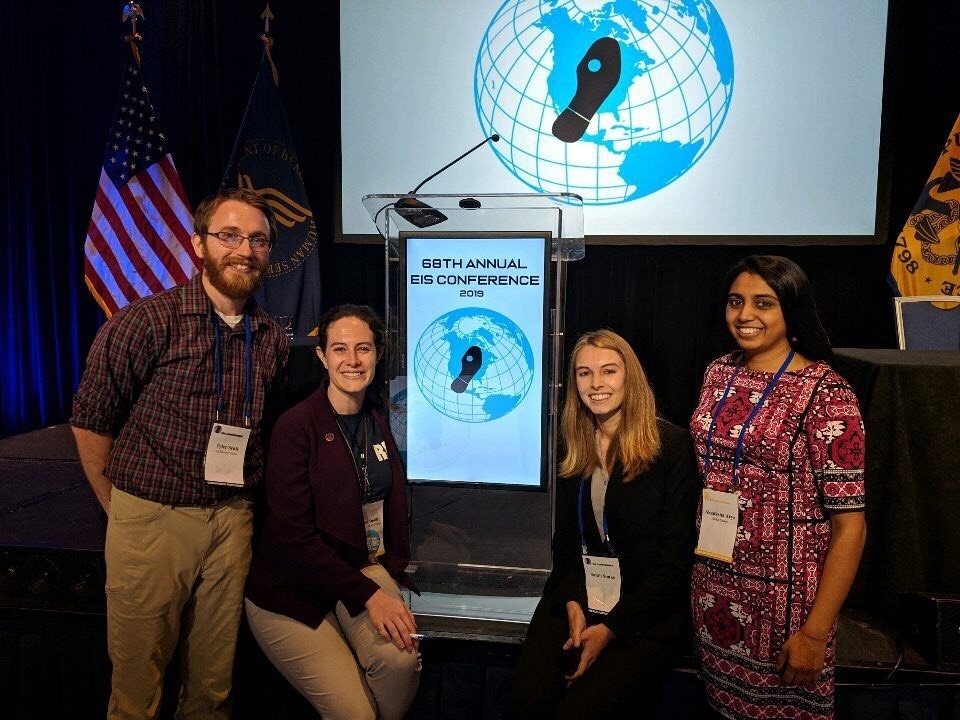
Epidemiology Elective Program Overview
The Epidemiology Elective Program (EEP) is an elective rotation for medical and veterinary students from different schools and diverse backgrounds. EEP introduces medical and veterinary students to applied epidemiology and public health. Students learn by gaining hands-on experience and mentorship from subject matter experts in public health. This program offers assignments during 6- or 8-week rotation periods based at CDC, other federal agencies, and state, tribal, local, and territorial health departments. More than 2,100 medical and veterinary students have completed EEP since its inception in 1975.
Successful applicants are willing to accept assignments in a wide range of public health topic areas and locations across the U.S. and have a record of high academic achievement, teamwork, innovation, service orientation, leadership, and unique lived experiences. Every effort is made to place students in an assignment that provides experience in leadership and in a preferred public health topic area that aligns with their career goals.
All EEP students attend a 3-day orientation at CDC headquarters in Atlanta, Georgia at the start of their rotation. Costs associated with orientation are covered by CDC. Students are offered a range of in-person and virtual trainings throughout their rotation. Most schools award academic course credit for participation in EEP.
Students work in a wide range of public health topic areas such as infectious diseases, chronic diseases, injury prevention, environmental health, and occupational health. Assignments may involve:
- conducting surveillance of a disease, injury, or other health condition,
- collecting and analyzing health data to identify new risk factors for disease,
- evaluating the effectiveness of program prevention strategies to help inform future implementation,
- assisting CDC’s Epidemic Intelligence Service (EIS) officers and other public health professionals to investigate an outbreak, and
- contributing to scientific reports, publications, guidelines, and communication materials.





